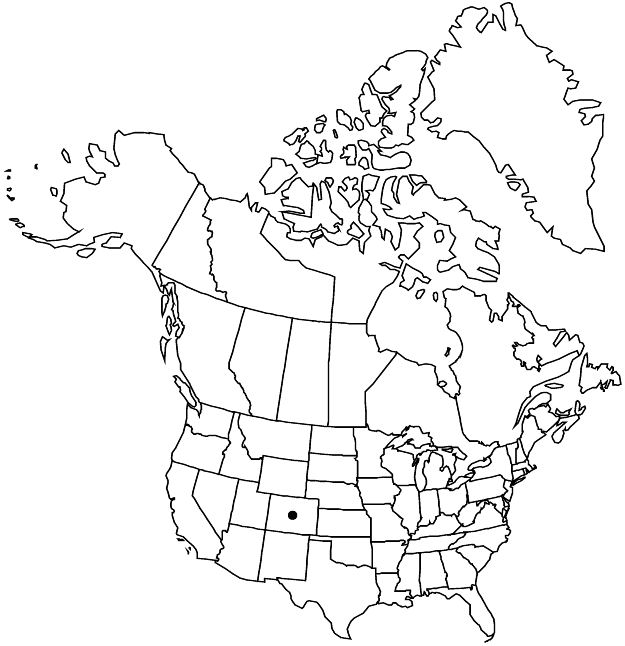Mentzelia marginata
Great Basin Naturalist, 46: 549. 1986.
Plants winter-annual or biennial, candelabra-form. Stems solitary, erect, straight; branches mostly distal, proximal longer than distal, all usually extending to near the distal end of plant, antrorse, straight; hairy. Leaves: blade 22–115 × 2.8–10.9 (–17.2) mm, widest intersinus distance 2.2–7 (–9) mm; proximal oblanceolate, elliptic, or lanceolate, margins dentate, teeth 10–24 (–38), perpendicular to leaf axis, 0.5–4 mm; distal elliptic to lanceolate, base not clasping, margins dentate, teeth 8–20, perpendicular to leaf axis, 0.3–5.6 mm; abaxial surface with simple grappling-hook, complex grappling-hook, and usually with needlelike trichomes, adaxial surface with simple grappling-hook and needlelike trichomes. Bracts: margins entire. Flowers: petals golden yellow, 8–14.4 × 2.1–3.9 mm, apex acute, hairy abaxially; stamens golden yellow, 5 outermost petaloid, filaments narrowly spatulate, slightly clawed, 5.5–11.1 × 1.2–2.9 mm, with anthers, second whorl with anthers; anthers straight after dehiscence, epidermis papillate; styles 5.3–10 mm. Capsules cylindric, 7–14.6 × 3.5–6.7 mm, base tapering, not longitudinally ridged. Seeds: coat anticlinal cell-walls straight to slightly wavy, papillae 4–10 per cell. 2n = 20.
Phenology: Flowering May–Aug.
Habitat: Steep roadside banks, steep cliffs.
Elevation: 1500–2000 m.
Discussion
Mentzelia marginata occurs on the western edge of Colorado in Delta, Garfield, Mesa, and Montrose counties. Reports of this species from Utah are based on specimens treated here as M. cronquistii.
Selected References
None.
Lower Taxa
No values specified."not elongating" is not a number.
